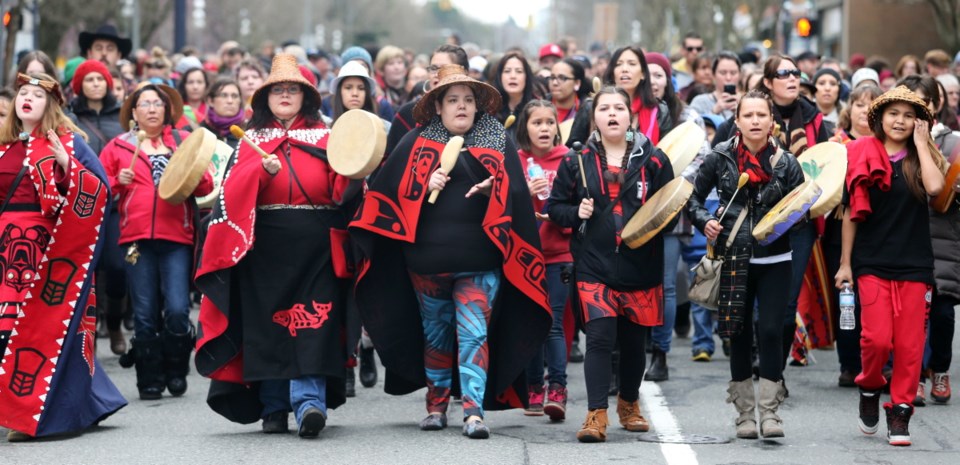There was grief and outrage on the streets Saturday, as hundreds gathered to remember aboriginal women who have died or gone missing.
In Victoria, hundreds of aboriginal women and supporters marched down Government Street to the legislature, coming together to remember their “stolen sisters.”
“Our main focus for the [Stolen Sisters] memorial march is that people will be able to come together and honour the women we’ve lost, and give space to community healing,” said organizer Jessica-Dawn Humphries ahead of the event.
“We don’t want to forget the lives we’ve lost, but we also want to find solutions for the future.”
This year marks the 25th anniversary of the first such march, which was held in Vancouver's Downtown Eastside in 1984. The march was first held in Victoria in 2009.
In Vancouver, family members clutched photos of lost daughters and sisters as they marched, stopping to lay roses at spots where their loved ones were killed.
A woman who identified herself as the mother of Cassandra Antone, who was killed in 1997, told the crowd that the deaths of indigenous people amount to genocide and must be stopped.
Aboriginal women in traditional clothing beat drums and sang as the protest began just after noon at Main Street and Hastings Street.
Organizers of the march say they continue to reiterate the call for a public inquiry into missing and murdered indigenous women.
They also say they support the family of Stephanie Lane, whose mother Michele Pineault has called for her daughter’s remains to be re-tested and for a new murder charge to be laid against serial killer Robert Pickton.
Betsy Bruyere, carrying a sign that read “Am I next?”, says she struggled to attend the rally this time, after more than a decade of marching in support of murdered women.
“I was kind of depressed,” she says. “It just doesn’t stop and it looks like it’s getting worse — the situation, the crisis, the invisible war against indigenous women. They’re trying to kill us, I’m pretty sure of it.”
The 59-year-old Anishinabe woman says she supports the “Am I Next” campaign, which was launched to raise awareness of missing and murdered indigenous women. But Bruyere adds that it’s an important question.
“There is certainty that within the next couple of minutes, within the next hour, by the end of the day, there’s going to be an indigenous woman murdered,” she says.
“I’d like people to educate themselves, especially men, and I’d like women to find their power, their voice. Let’s all work together and put an end to this. Because this really is too much.”



